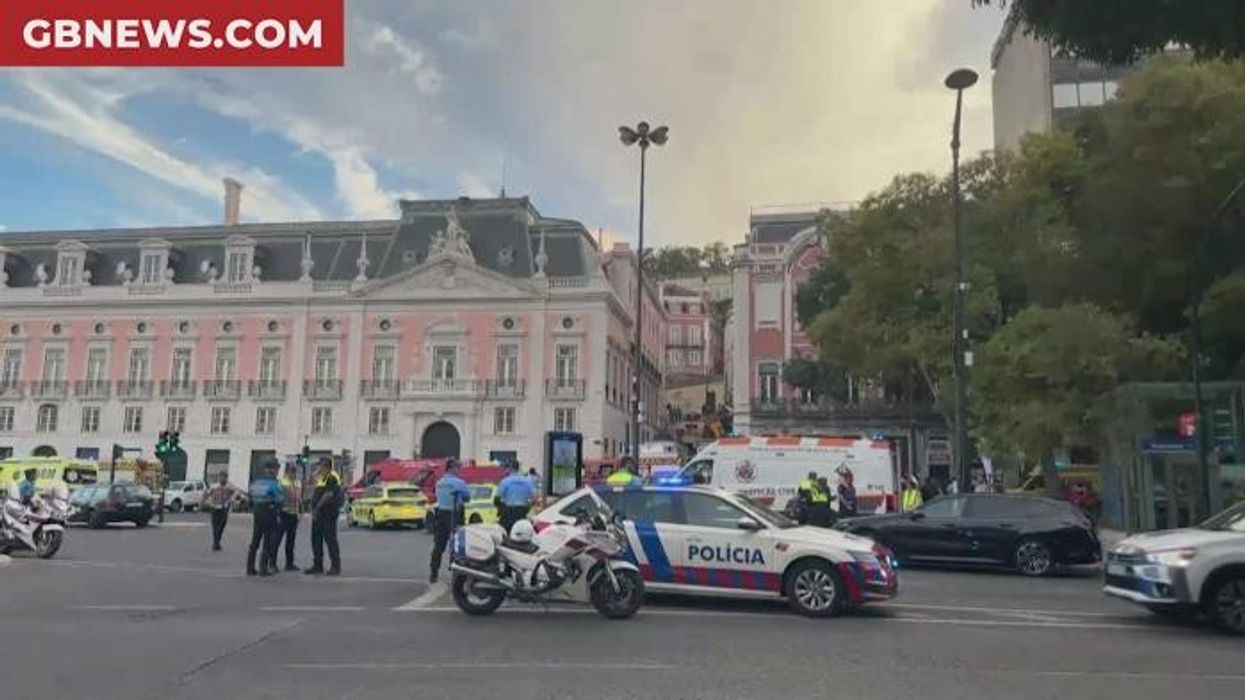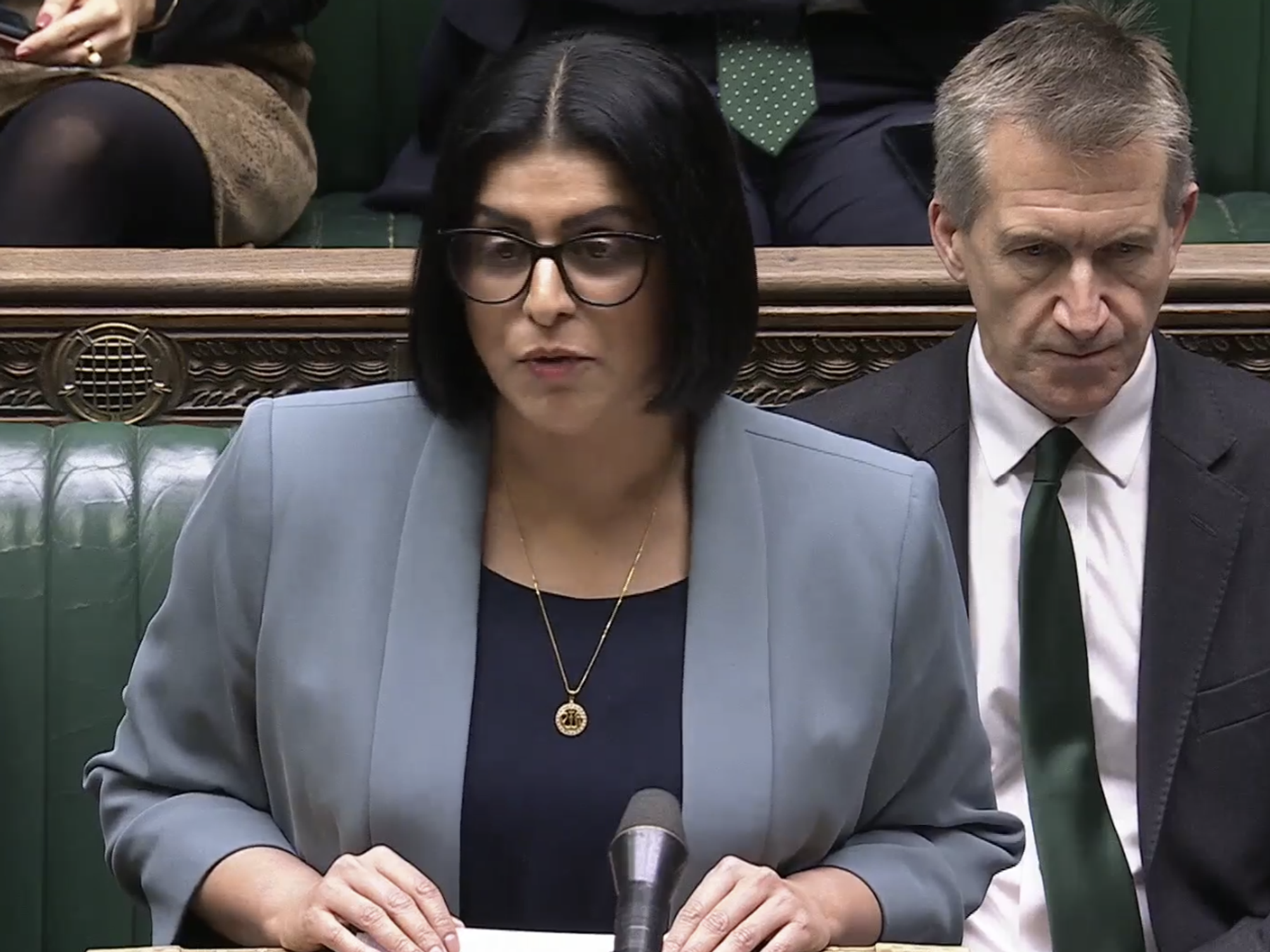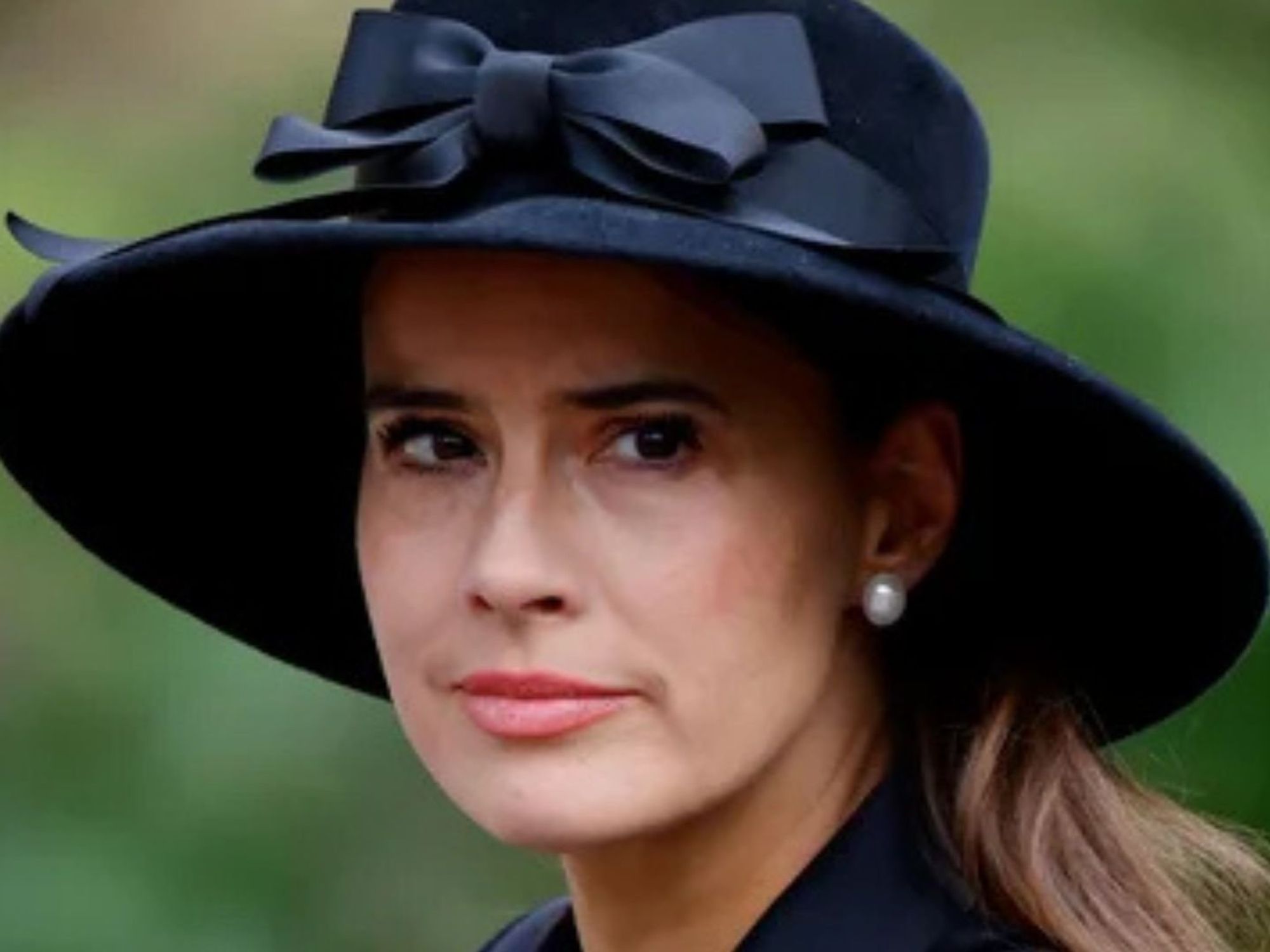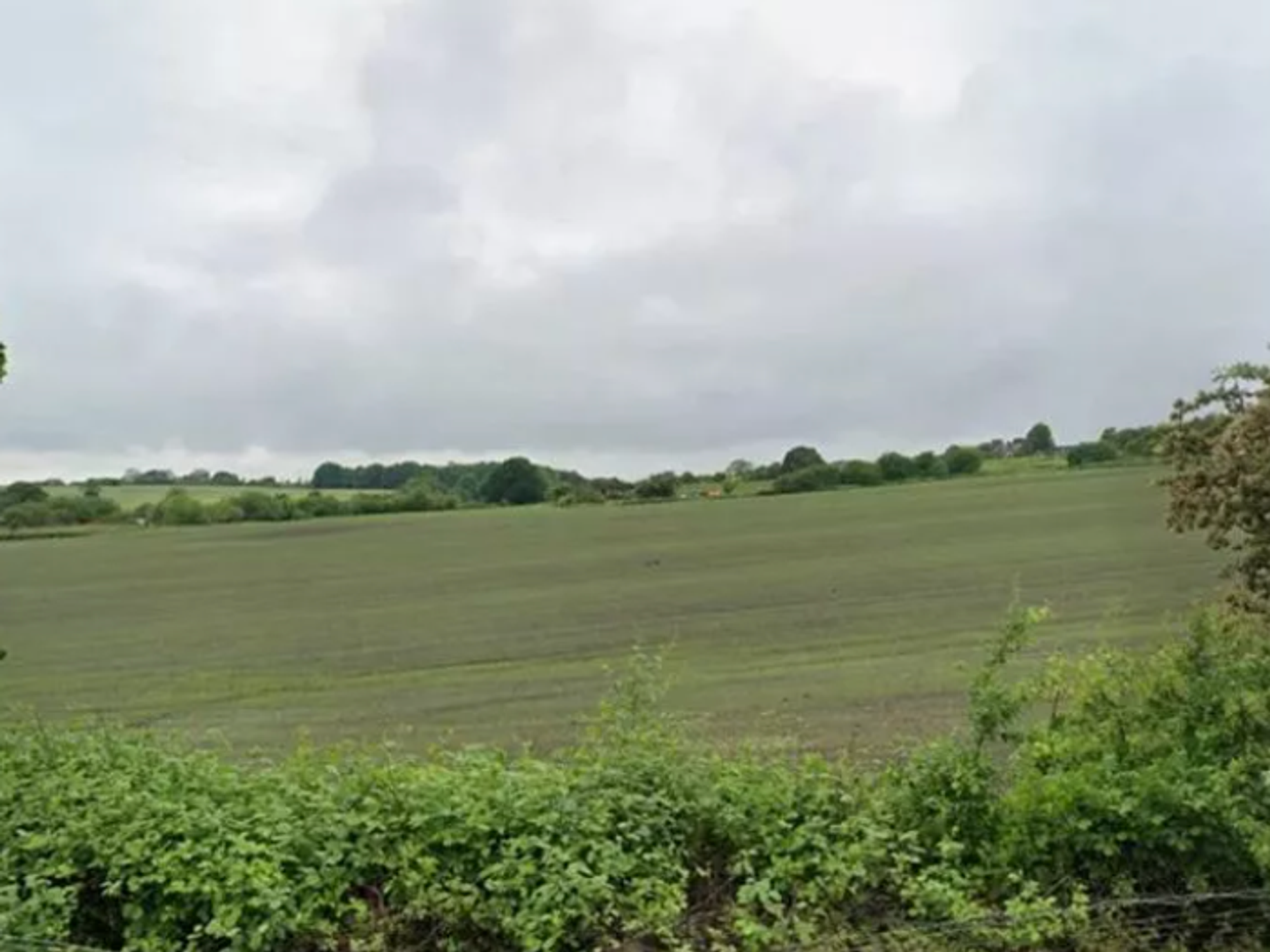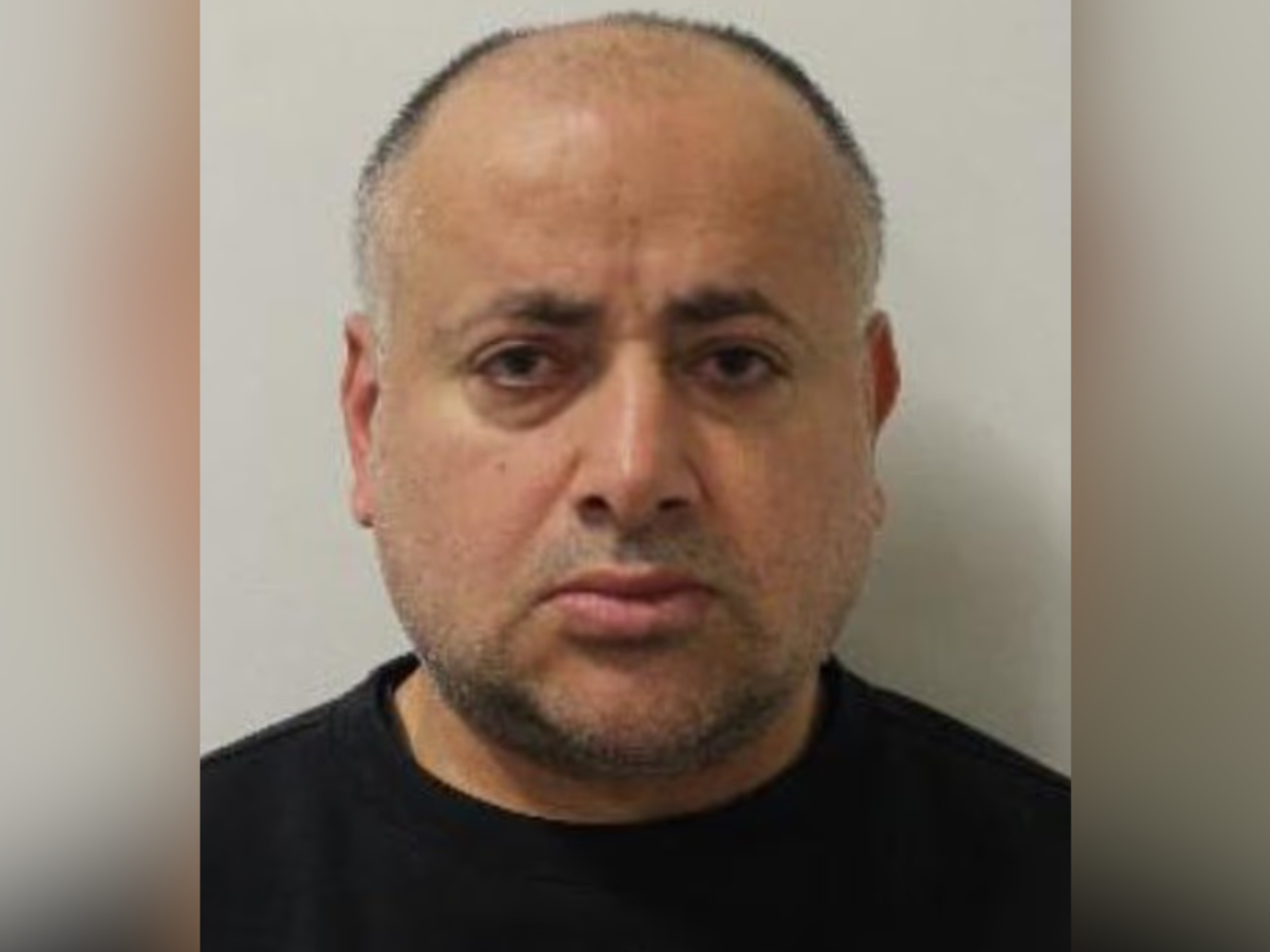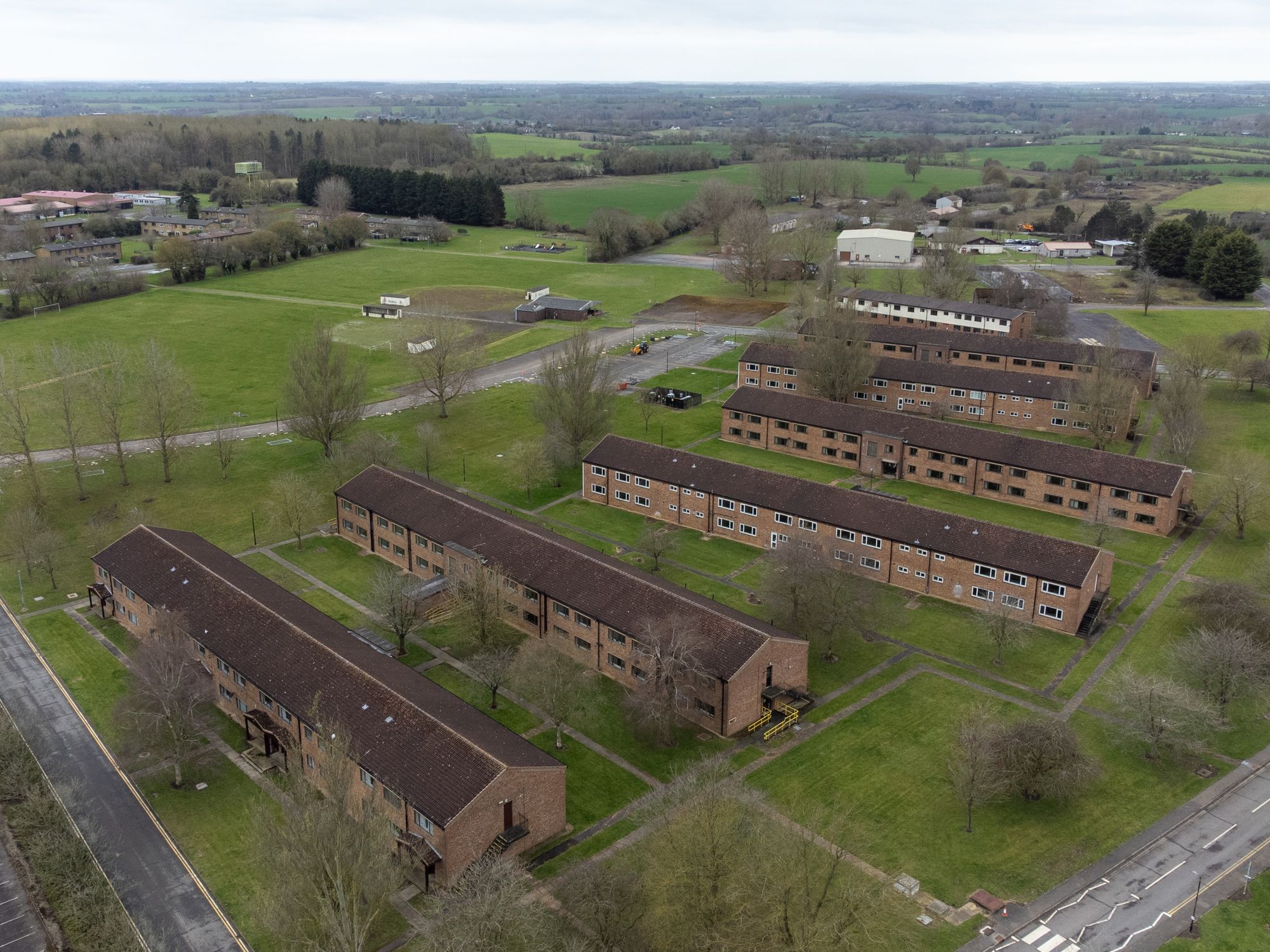Three Britons among 16 people killed in Lisbon funicular crash

Emergency workers remain at the scene in the Portuguese capital
Don't Miss
Most Read
Trending on GB News
A group of three British nationals are among those who were killed when the Gloria funicular derailed and crashed in Lisbon.
The crash happened at around 6pm on Wednesday in the Portuguese capital, claiming the lives of 16 people.
Nationals of Portugal, South Korea, Switzerland, Canada, Germany and Ukraine are believed to be among the dead, police say.
A US citizen was killed in the crash, the State Department said in a statement.
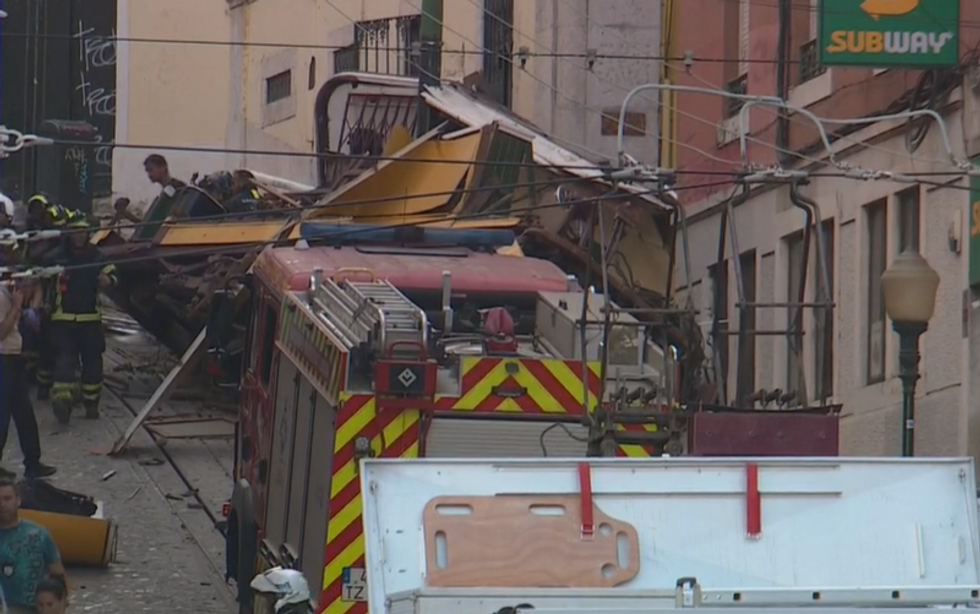
A tourist tram in Lisbon has crashed, killing 16 people
| CNN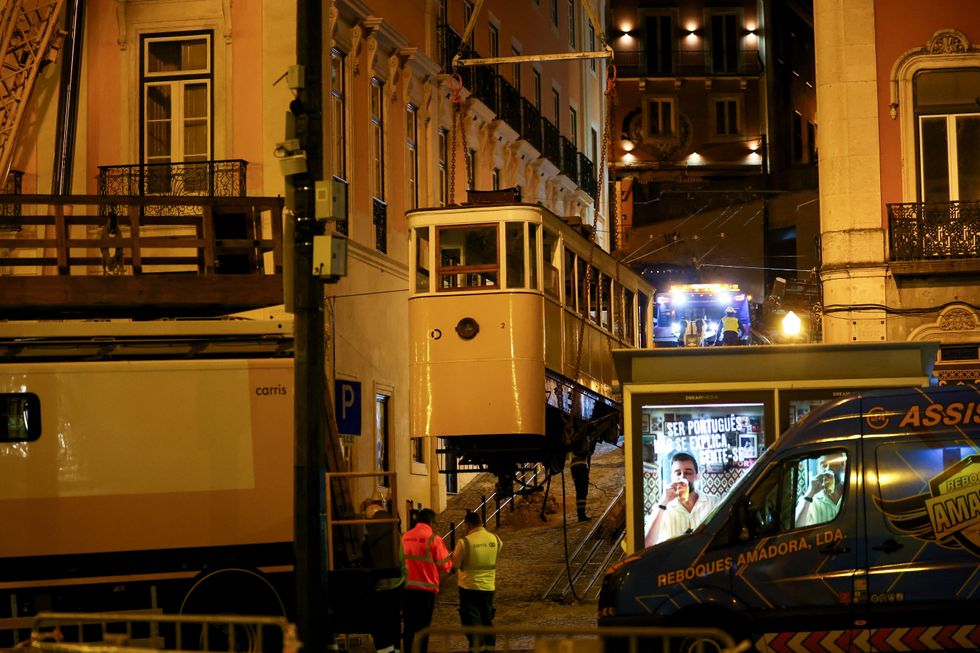
One of the funiculars is lifted, following derailment and crash of the Gloria funicular railway car
|REUTERS
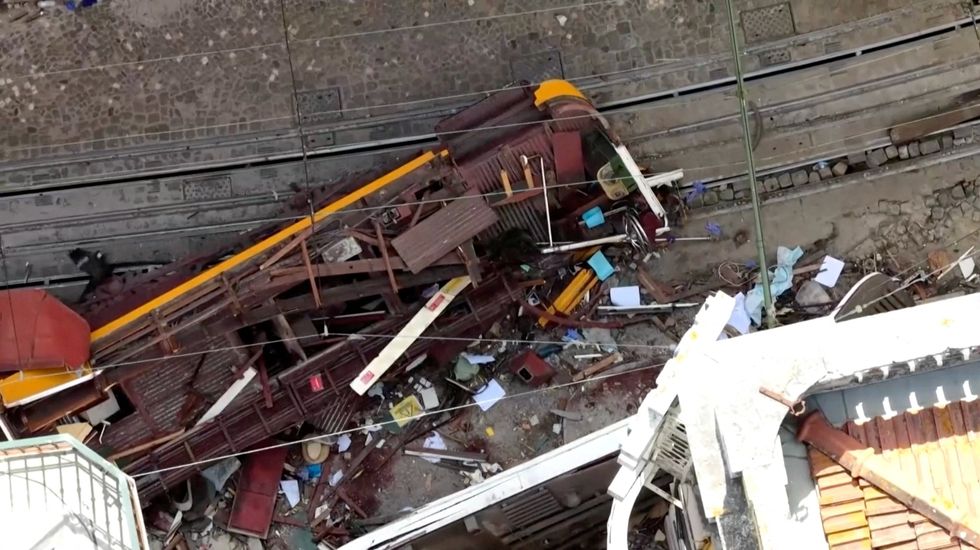
A drone view shows the site of the accident
|REUTERS
The mangled wreckage of a yellow tram-like carriage, which carries people up and down a steep hillside in the Portuguese capital, lay where it had left the track and hit a building.
The crash happened just metres from its twin at the bottom of the steep 265-metre slope after the ttraction cable linking them had snapped.
Lisbon resident Abel Esteves, 75, and his wife and grandson were among 40 passengers in the lower car who saw the carriage plunge toward them before derailing at the last second.
Mr Esteves told reporters: "I told my wife: 'We're all going to die here.' It picked up a brutal speed, took a slight turn and hit the building with a loud bang."
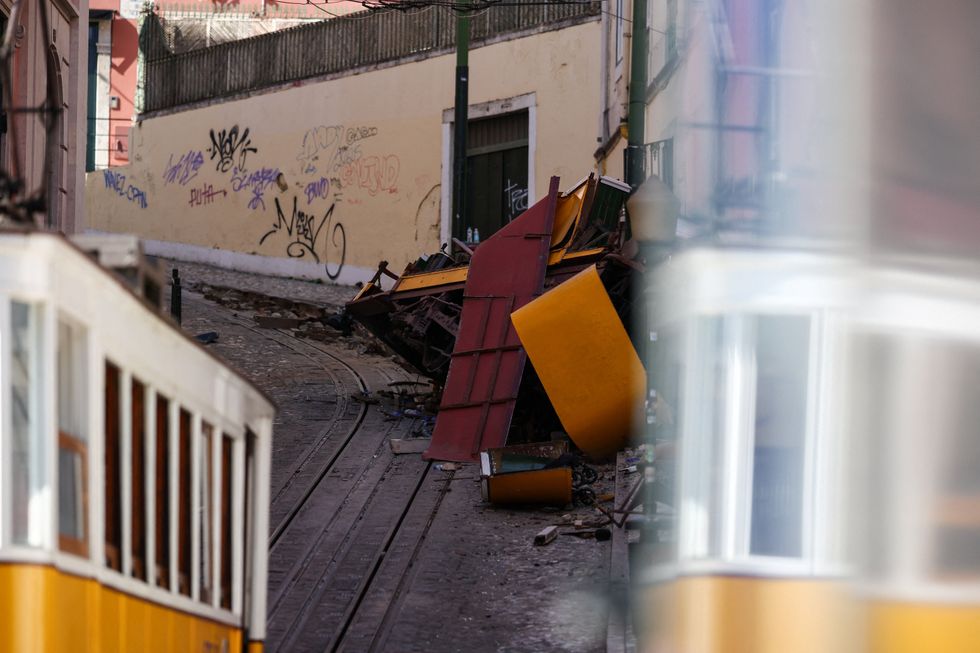
A view shows the site of the accident after Gloria funicular railway car, a popular tourist attraction, derailed and crashed
|REUTERS
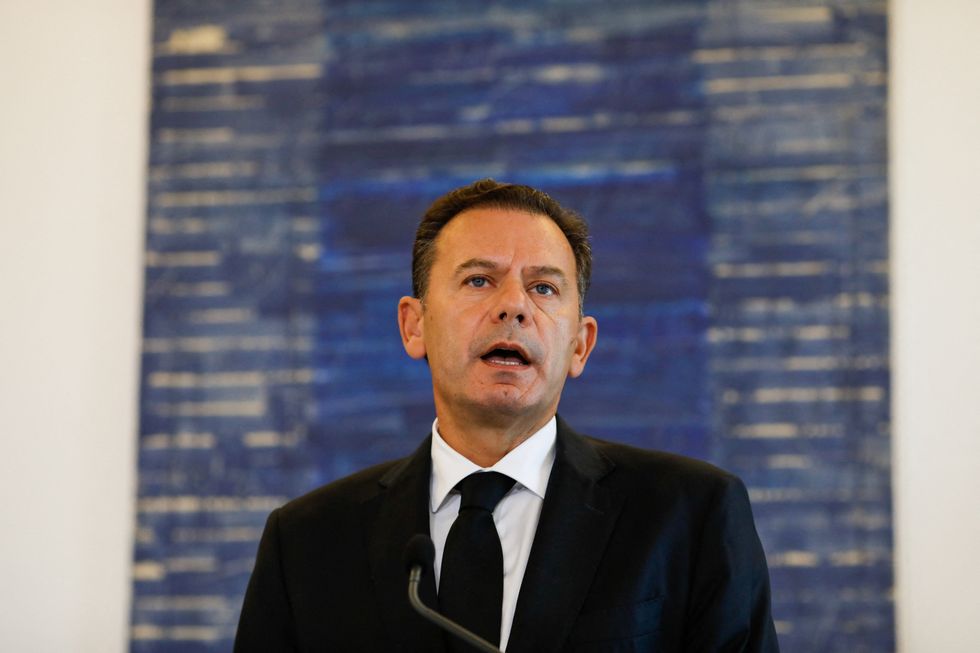
Portuguese Prime Minister Luis Montenegro called it 'one of the greatest human tragedies'
|REUTERS
Prime Minister Luis Montenegro said he expects the investigation into the causes of the accident to be concluded swiftly.
In a televised address to the nation, Prime Minister Montengro said: "This is one of the greatest human tragedies in our recent history."
Manuel Leal, leader of the Fectrans union, told local TV that workers had complained that problems with the tension of the cable that hauls the carriages had made braking difficult, but that it was too early to say if that was the cause of the crash.
The municipal transport company Carris said in a statement that "all maintenance protocols have been carried out," including monthly and weekly maintenance and daily inspections.
"On Wednesday morning, the inspection was carried out and no faults were detected...We cannot assume that the problem was with the cable. The investigation will determine the cause," Carris CEO Pedro Bogas told reporters.
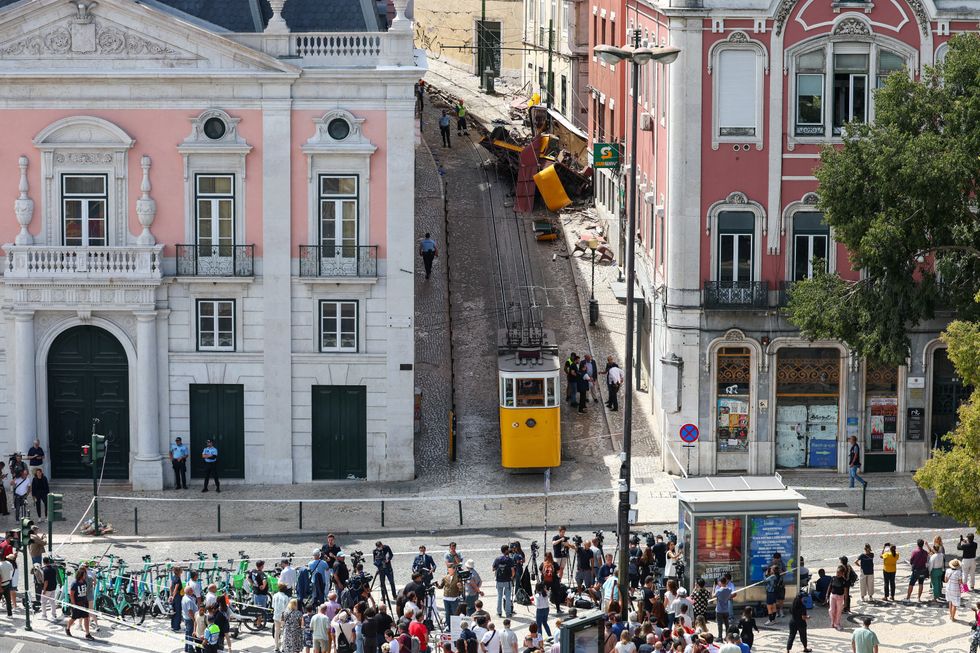
People gather near the site of the accident in the capital
|REUTERS
The Gloria line, which opened in 1885 and transports around three million people a year including many tourists, connects Lisbon's downtown area near Restauradores Square with the Bairro Alto, or Upper Quarter, which has a vibrant nightlife.
Mr Esteves said he had earlier used the railway to descend from the Chiado neighbourhood to Restauradores Square and was on his way back home when the crash happened.
He said he has lived in Lisbon for 62 years and that he never until now felt at risk when using the 140-year-old funicular railway.
"I never felt unsafe... but I'm never again going to take a tram (funicular), for as long as I live."


